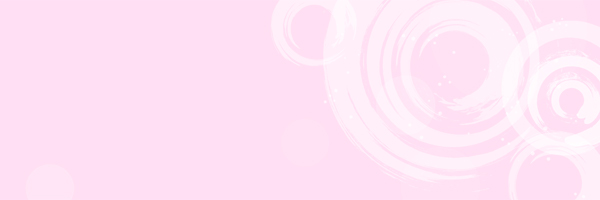(AS from Hokkaido/20s/Female/Housewife)
I got pregnant with my child in my 20s. I always thought that there would be no problem and my child would be born healthy. But we found out my child has a disability—An uncurable rare disease of the genes called Sotos syndrome. My daughter was unable to be breast fed, unable to crawl, and the ability to use words was much slower than other children. When I looked at other children, my heart was in pain. “Why do I have to go through this? Why only me?” As much as I loved my daughter, I couldn’t accept what was going on and was feeling anxious.
What Changed My Kokoro
I became a shinja when I was pregnant with my daughter. Convinced by my husband and his parents, I wanted to create a warm family with my husband—just like his parents did. And my in-laws truly supported me with my situation with my daughter. They would praise my daughter even she misbehaved. They would tell my daughter, “Wow, you can do this too! You are terrific!” Seeing my in-laws made me feel more positive and made me want to be a better mom who can give more love to my baby.
I learned at Oya no Kai (Parenting class) that when the parents are stressed, the children feel the exact same stress. I believe this is so true. For instance, when I have an argument with my husband or when I am feeling tired, that is when my daughter’s nighttime crying becomes severe. Or in some cases, she would ignore my husband. Back then, I put my daughter in nursery school and was working, but after much consideration and talk with my husband, I decided to stop working. I thought, what I needed to be doing now is to focus on my daughter. I wanted to cherish and foster every moment, every word, and every action. I didn’t want to miss out on anything with my daughter.
I also learned from the teachings of Kami, that the kokoro of husband and wife must always be together when child-rearing. But it was difficult to always be on the same page with my husband especially when he has night shifts. But then, my husband would say, “We should talk even just for a little bit…” and he would insist that all three of us should always eat meals together, or take baths together, etc. My husband has been the number one most understanding person about us, and the person I always talk to.
The Personality That Surfaces
As I started to interact with my daughter differently, my daughter started to thrive. She used to not smile so much, but she would always be smiling. She would charm anyone around her. And along with my daughter, I have become more socially interactive. This was one of the good that came out of the whole situation.
A year and a half have passed since my daughter was born. And her kokoro to give started to grow within. She would bring snacks to people’s mouth and share, and she would help me wash up as we take a bath together. People always come before her. I may be a doting parent, but I feel that my daughter’s sense of generosity has been drawn out more and more.
My Daughter’s Life Is a Treasure Gifted from Kami
One of the things I learned as I became a shinja was that the parents are the only ones who can help lead their children’s life to happiness. To be honest, I wasn’t confident about raising a child. I used to think, “Nursery school will help grow my child. I want to continue working…” This idea was wrong. I am grateful that I was able to realize what I should not neglect as a parent.
Kami gifted this child to me and my husband. I can’t help but to think that Kami thought it was okay… that we would be able to take care of this child correctly and in the right way. Together along with my husband, I promise to cherish our child.
Heeding the Shinji to Understand the Reasons for the Joys Experienced
Shinji is the universal principle (truth), and can also be the guidance of life that foresees the future. Please feel the wonders of a life that flows exactly in a way the Shinji tells us when you live with the teachings of Kami.
Shinji
In a family environment where the husband and wife learn the teachings together, and incorporate them into their conversation, the child’s kokoro feels secure and will anchor; the strengths of the child’s unmei will be drawn out and honed.
This environment is where family/home education occurs.

